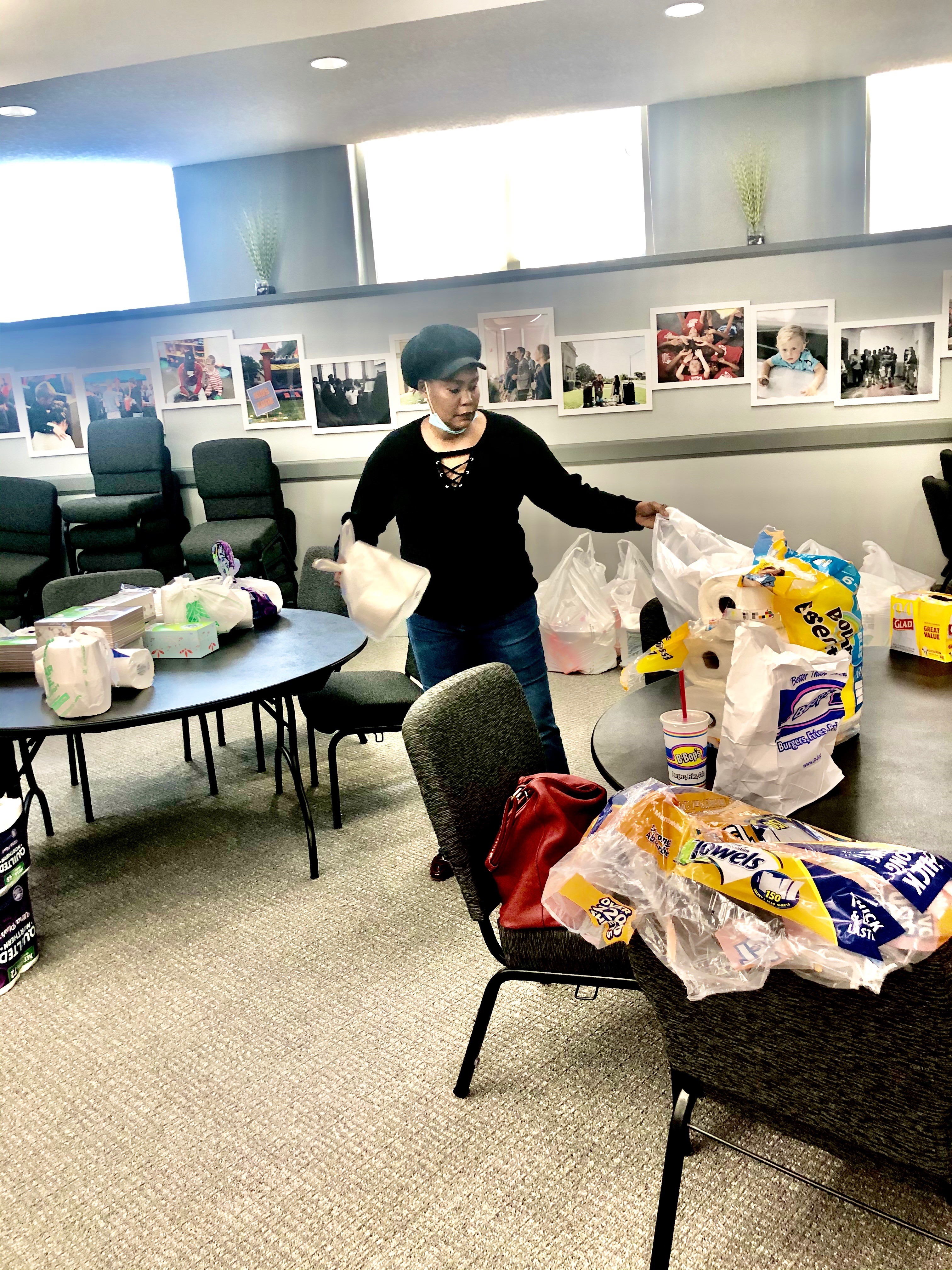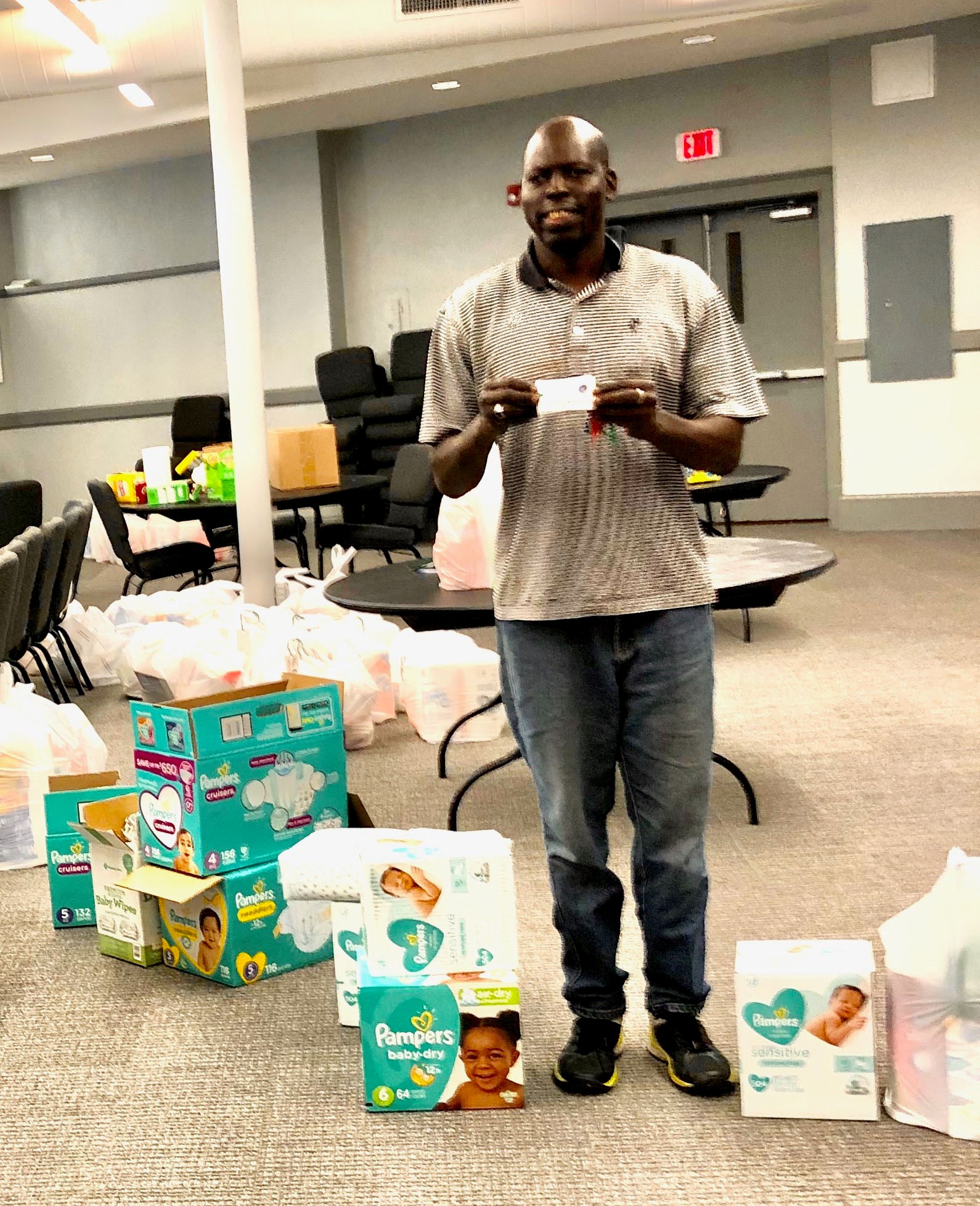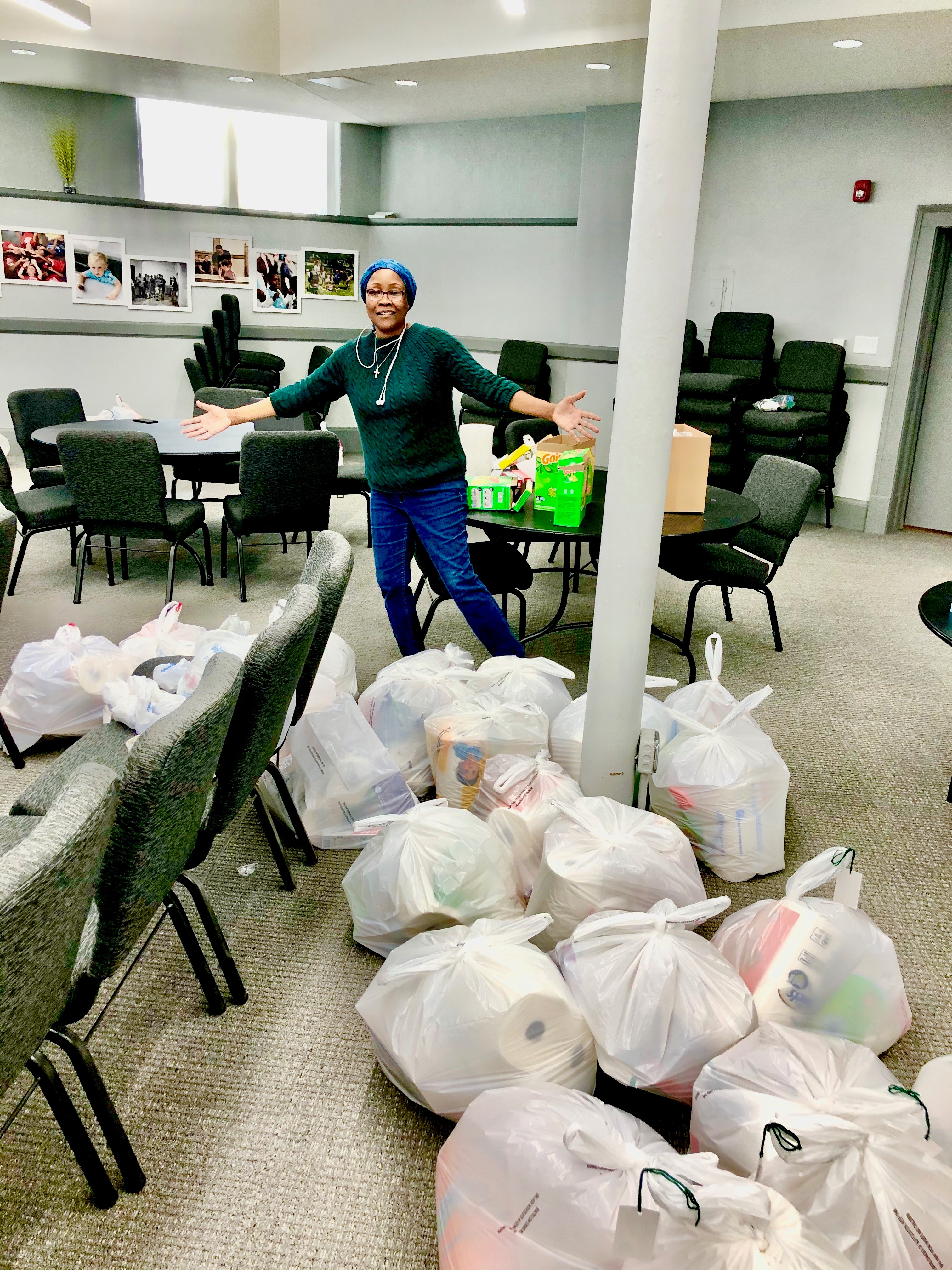This story, recently published by the Presbytery of Des Moines, demonstrates the way in which many refugee ministries have pivoted from providing practical and long-term assistance to focusing on the immediate needs of those they serve in the face of the COVID-19 pandemic. The Arabic Outreach Center (AOC)—an independent 501(c)3 established by First Arabic Presbyterian in 2018—is directed by First Arabic’s pastor, the Rev. Ekram Kachu. While many of First Arabic’s congregation are Sudanese, the AOC’s “by refugees, for refugees” approach provides programming and assistance regardless of religion, tribal/ethnic background or nationality.
Arabic Outreach Center Brings Relief and Hope during Pandemic
“It’s the small things we do for all the families that make a difference…and provide hope.”
When First Arabic Presbyterian Church created the Arabic Outreach Center just over two years ago, little did they know the vital role this organization would play during a pandemic. What started as a mission to welcome and assist Arabic-speaking immigrants and refugees with practical services (tutoring, language classes, translation assistance, etc.), has quickly evolved into meeting critical, basic human needs for a suffering community.
As the first signs of the Coronavirus threat emerged and churches began to close, those in the Arabic-speaking community were afraid and confused. Due to language barriers, they often did not understand what they should do to keep themselves and their families safe and virus-free. Some were losing their jobs and now had no income. Many of them, particularly mothers and seniors, were isolated and running out of food or supplies, and did not know how to access helping services. And some were getting sick with COVID-19. The Arabic Outreach Center canceled regular programming and shifted its focus to meeting emergency needs.
At first Pastor Ekram attempted to minister to all the people’s requests herself, but it quickly became apparent that the task was far too great for just one staff person. With the help of the presbytery’s Sudanese Support Team, the Outreach Center took several important steps:
- A Presbyterian Disaster Assistance grant application was submitted, and a grant to fund the purchase of needed supplies was received within a matter of days.
- First Arabic Church members stepped up to help. They started by taking a survey of the congregation members and those who had been regular participants at the Arabic Outreach Center. Needs were assessed and recorded.
- A successful short-term fund-raiser was held among friends of the Arabic Outreach Center, enabling the AOC to hire additional temporary outreach workers.
- The workers began securing supplies—cleaning products, paper products, diapers, etc.—and distributing them to folks in need.
- The workers also provided recipients with information about accessing government assistance for food, unemployment insurance, etc.
These efforts were well-organized, and in the first three weeks of operation, $2,000 was spent on supplies and 289 people (63 families) received some kind of assistance. Those who were helped were from a variety of backgrounds and nationalities – some were Christian, some were Muslim – and all were very grateful. One outreach worker stated, “The supplies provided are given with love… the point is not the quantity but the quality of care we give… the needs are great, and it is good to be able to help.”
Word about the Arabic Outreach Center’s assistance has begun to spread, as the effects of the pandemic continue to grow. Among congregation members and those served by the Outreach Center, a frightening number have fallen ill with COVID-19. Many Arabic-speaking people who are still working are employed in the meat-packing industry and feel at risk just by going to work. Others who had worked in the hotel industry or other service industries have lost their jobs and are struggling to secure unemployment insurance. In addition, because First Arabic’s on-line worship services are viewed by Arabic-speaking people around the world, calls for help are now not just local, but also international. As the pandemic encircles the globe, people in need both near and far are longing to hear the word of God, asking for prayer, or seeking advice and counsel.
To learn more about the Arabic Outreach Center and how you can support them, visit this page.
PDA supported AOC’s ministry through emergency COVID-19 grants. As part of the PCUSA pandemic response, PDA provided 22 grants specifically dedicated to domestic refugee relief, 2 of which were allocated to African worshipping communities.
There is so much we still don’t know about the pandemic, but we do know that it devastates the most vulnerable populations. As we approach World Refugee Day on June 20, we will further cultivate connections with our refugee and immigrant neighbors—who face increasingly treacherous journeys—by sharing updated worship tools and suggested, ongoing activities as we get closer.


